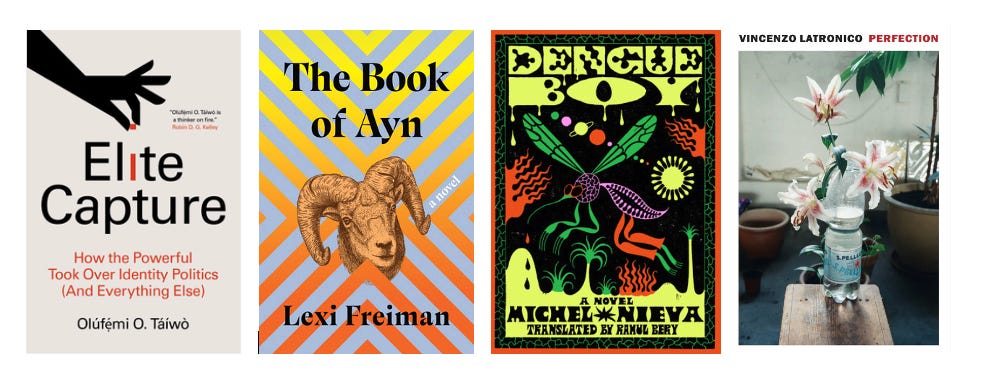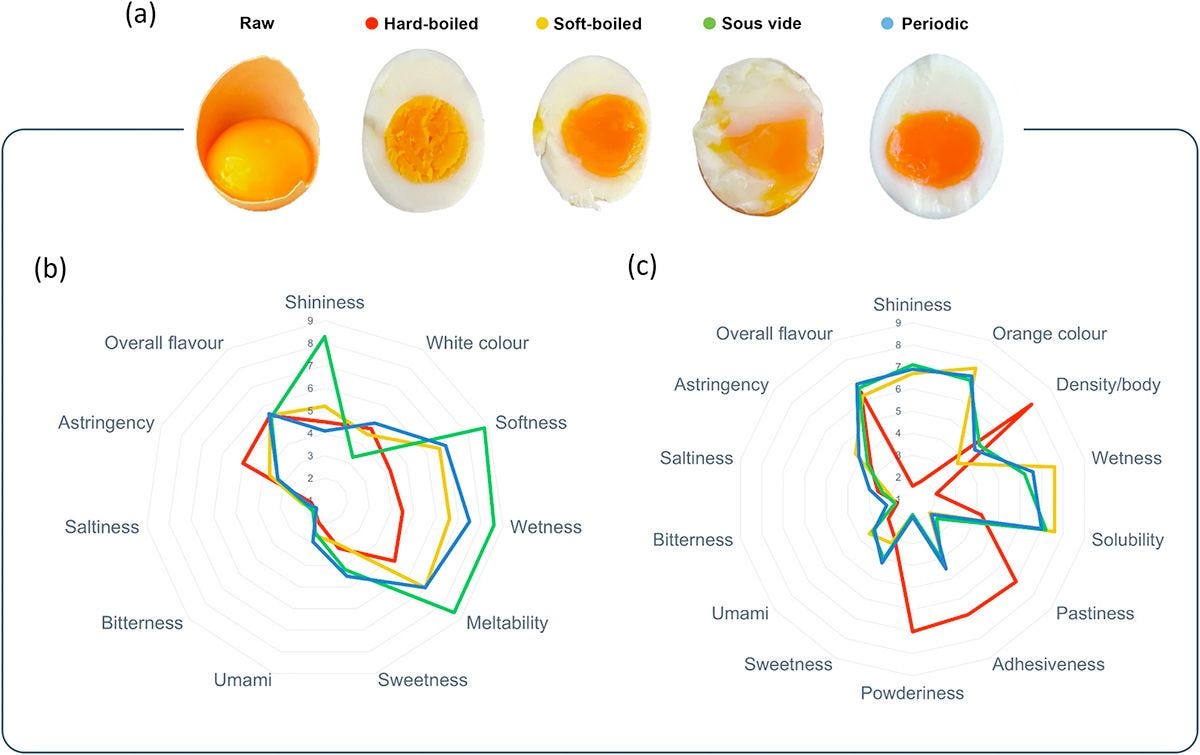This week I am…
Downing
Apple Cider Vinegar, Netflix’s best grift-docudrama to date, about two Australian health-fluencers who cured their cancer by natural methods; unfortunately one of them eventually died from her uncured cancer and the other turned out not to have cancer at all. The show works because it’s gross, it doesn’t hate women as much as most of these shows do, and as my pal Leora pointed out to me, it’s so overblown that it’s camp. I like the way it depicts the serotonin reuptake inhibition of using social media. And now feels like a good time to spend six episodes dwelling on the convergence of the attention economy, yoga cults, medical sexism, the deregulation of consumer products, and the conversion of science to opinion.

Riding the subway 38 minutes to see
the NY Outsider Art Fair, in order to lay eyeballs on the James Castles and Bill Traylors and try to figure out what the market for “outsiders” looks like rn. The going definition and boundary policing of that category at a given moment can tell you a lot about how the monolith of “contemporary art” is being regulated, too. Are the outsider artists being called “visionary”? Are their works being sold via long wall descriptions describing their suffering? Are the blue chips selling the same artists as the folk art galleries? Mostly I just want to see the good stuff:
Reading
Elite Capture by Olúfẹ́mi O. Táíwò, which explains it simply: they, you know who they are, commodified identity and weaponized it against you to destroy solidarity. I haven’t heard the mechanisms by which this happens explains so succinctly since Asad Haider’s Mistaken Identity, and it’s relieving to have it spelled out. Táíwò distinguishes between the “rules that tell us who we are supposed to be and the actual choices we have when we act.” Rx: don’t direct “what little attentional power we can control at symbolic sites of power rather than at the root political issues that explain why everything is so fucked up.”
I found an UNEXPECTEDly accurate pairing with Lexi Freiman’s masterpiece The Book of Ayn, which I’ve meant to read since it came out in 2023, and which uses FUNNINESS to just RIDE THE LINE of reactionary politics by making you feel reactionary, too, because it’s hard not to want to provoke people’s sensibilities when they’re policing the wrong things. Of COURSE you want to smear your shit on the walls of this place we all live (which is what the main character does). Plot is about a cancelled author who becomes convinced that the me-and-my-ego philosophy of Ayn Rand (“an intellectual top and a sexual bottom,” ha ha), can show her the way. Or: It’s about someone misunderstanding their own motives and trying to identify the trap they’re in, a trap where any kind of reaction to the game we’re forced to play is subject to… elite capture. But whatever, read it for the jokes.
Michel Nieva’s Dengue Boy: a gonzo fable that’s quick to the slaughter. I think it’s about a giant mutant human-mosquito hybridized by insurance companies that are manufacturing monstrous infectious deaseases to hedge their bets on the emergence of future pandemics. But it’s not worried about boring things like genre or plausibility. It is so full of inventions that it sort of re-invents itself by the end, to the point that I’m not sure whether we’re in a simulation or VR or what, but I’m glad I don’t have to explain it in order to like it and I’m glad it exists.
Not reading but shilling
a book that is total Perfection. You’re not supposed to write reviews of your friends’ books (which is not the case when it comes to art writing, where the whole point is to review your friends’ shows; why is that different?) so I have chosen to shill my friends’ books using Substack instead. Vincenzo Latronico wrote a novel called Perfection that has now been LONGLISTED FOR THE BOOKER. It frames “expat” and nails it to the wall. I feel content that we can rest easy and not write any more expat novels now that Vincenzo has done it. Reading it will make you feel uncomfortably cornered and finally liberated, which is what the objective reviewers are saying.
Reading on the internet
the last issue of Lux magazine, which does not miss. A Cop City organizer who pays the bills via OnlyFans, uh-oh-zempic, strip searches in prisons, and DAVEY DAVIS on conversion therapy. (If you have not read Davey Davis’s book X, which is not about Twitter, do that.)
If I were teaching [literally any subject] this semester I’d find an excuse to assign Tobi Haslett’s talk on Hamishi Farah’s painting for this year’s transmediale. Both artist and writer have done the best you possibly could do in a situation where the state tries to eat your laughter. What’s happening in Germany makes Vincenzo’s novel a historical document of a class that I’m not sure will exist anymore in the same way. Do you think that a creative class will continue to survive in Berlin (anywhere?) amid this much repression? Or do you think that the thinking people will be Stefan Zweig on the last train out before the war? Do the Berlin tech people still have creative-class philodendrons in their homes, or have they gotten rid of living plants by now?
As Tobi Haslett suggests in the article I am:
Giving money to
3EZWA, “Founded by a coalition of activists and groups unified by solidarity with the people of Palestine, 3ezwa's focus will be to provide financial and legal support to those who experience repression for their commitment to the Palestinian cause.”
Telling people about
the corrections officers’ strike in NY prisons. 15k officers are refusing to work. People are stuck in cells 24/7, some without regular food and medication. Finally a labor union I cannot get behind.
Writing something
on the effects of light pollution—a third of humanity can’t see the Milky Way—which has led me to the phenomenon of lantern-smashing during the French Revolution. Lanterns: the symbol of surveillance, spying and control. If you think you could get into the history of lamps, which is the history of energy centralization, monopoly power, security, colonialism, consumer culture, the theater, parties, modernity, and so on, may I recommend Wolfgang Schivelbusch.

Thinking about
Making Memories. In honor of the new season of Love is Blind, I am, once again, dwelling on the minutiae of the compulsive speech patterns of the participants (unpaid laborers). People on reality dating shows constantly say some variant of this when meeting their would-be spouses: “I can’t wait to make memories with you,” or “I can’t wait to spend a lifetime making beautiful memories together,” a phrase that disturbs me because it sounds like the whole point of your life is preparing for old age and death, and always contains the suggestion that memories are made by having children, which gives me a very Lee Edelman No Future reaction. You want to make memories by reproducing kids who will reproduce kids who will reproduce kids who will remember their memories of you remembering your memories…? Why would experience itself be predetermined as a memory machine? At which point will you enjoy those memories, exactly? One decade later? Right after they happen? As they pass, second-by-second? Is making memories actually code for posting about your life? In which case the memories are actually the experiences of looking at your own Instagram feed, which carries a ghostly impression of the original experience? Why does it sound so Christian? Making memories makes me want to smear shit on the walls (see above).
Eggs
Thanks to Vincenzo for sending me this experiment that CERN recently completed:








